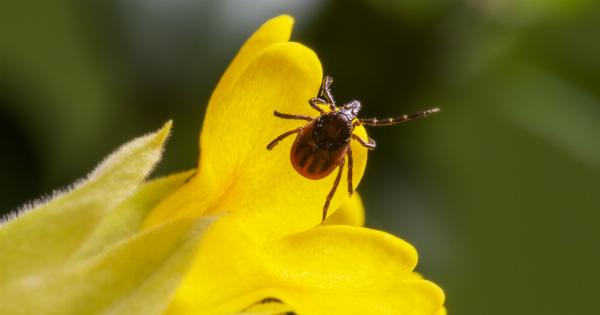It’s no secret that pets are beloved members of many households. They provide companionship, joy, and even health benefits. However, it’s important to also consider the potential risks that come with owning a pet.
Pets can serve as carriers of diseases that can be easily transmitted to humans. In this article, we’ll discuss some of the most common diseases that pets can carry and what you can do to keep your family safe.
Salmonella
Salmonella is a type of bacteria that can cause food poisoning in people. While it’s most commonly associated with contaminated food, pets can also be carriers of the bacteria. Reptiles, such as turtles and lizards, are often carriers of Salmonella.
However, dogs and cats can also carry the bacteria and pass it on to humans through their feces or saliva.
To prevent the spread of Salmonella, it’s important to practice good hygiene. Make sure to wash your hands thoroughly after handling your pet, especially if you’re cleaning up after them. Also, avoid kissing your pet or sharing food with them.
If you have a reptile as a pet, it’s recommended that you keep them out of the kitchen as much as possible.
Rabies
Rabies is a viral disease that affects the nervous system. It’s usually transmitted through the bite of an infected animal, such as a raccoon, bat, or skunk. However, dogs and cats can also transmit the disease if they’re not vaccinated.
Rabies is a serious disease that can lead to death if left untreated.
To protect yourself and your family from rabies, make sure that all of your pets are up to date on their vaccinations. If your pet is bitten by another animal, make sure to contact your veterinarian right away.
It’s also important to avoid contact with wild animals, especially if they seem sick or aggressive.
Lyme Disease
Lyme disease is a bacterial infection that’s transmitted to humans through the bite of an infected tick. Dogs are often carriers of the bacteria that causes Lyme disease, and they can bring ticks into your home.
If you’re bitten by an infected tick, you may develop symptoms such as a rash, fever, and joint pain.
To prevent Lyme disease, make sure to check your pet for ticks regularly. Use tick prevention products on your pet, and consider treating your yard with a tick repellent.
If you’re spending time outdoors in areas where ticks are common, wear long-sleeved shirts and pants, and use insect repellent.
Toxoplasmosis
Toxoplasmosis is a parasitic infection that can be transmitted through contact with infected cat feces. It’s also possible to get toxoplasmosis from eating undercooked meat.
While it’s more common for pregnant women to develop complications from toxoplasmosis, anyone can become infected.
To prevent the spread of toxoplasmosis, make sure to wash your hands thoroughly after handling cat litter or gardening. If you’re pregnant, it’s recommended that you avoid cleaning the litter box altogether.
Also, make sure to cook meat to a safe temperature and avoid eating raw or undercooked meat.
Ringworm
Ringworm is a fungal infection that can be transmitted through contact with infected animals, such as cats and dogs. It’s characterized by a circular rash and can be easily treated with antifungal medication.
While it’s not a serious illness, it can be uncomfortable and unsightly.
To prevent the spread of ringworm, make sure to keep your pet clean and well-groomed. If your pet does develop ringworm, take them to the vet right away for treatment. Also, avoid sharing clothing or bedding with your pet if they have ringworm.
Giardia
Giardia is a type of parasite that can cause gastrointestinal illness in humans and animals. It’s transmitted through contact with infected feces or contaminated water. Dogs are often carriers of giardia and can spread it through their feces.
To prevent the spread of giardia, make sure to pick up after your dog and dispose of their feces properly. Also, make sure to wash your hands thoroughly after handling your pet and avoid letting them drink from contaminated water sources.
Campylobacteriosis
Campylobacteriosis is a bacterial infection that’s characterized by diarrhea, fever, and abdominal pain. It’s usually transmitted through contaminated food, but pets can also carry the bacteria and spread it through their feces.
Dogs and cats are both potential carriers of Campylobacter.
To prevent the spread of Campylobacter, make sure to practice good hygiene. Wash your hands thoroughly after handling your pet or cleaning up after them. Also, make sure to properly cook your food and avoid cross-contamination in the kitchen.
Psittacosis
Psittacosis is a bacterial infection that’s commonly associated with birds, such as parrots and cockatiels. It’s usually transmitted through contact with contaminated bird droppings.
While it’s rare for humans to get psittacosis from their pets, it’s still important to be aware of the risk.
To prevent the spread of psittacosis, make sure to clean your bird’s cage regularly and dispose of droppings properly. Also, avoid inhaling dust or debris from the cage and wash your hands thoroughly after handling your bird.
Leptospirosis
Leptospirosis is a bacterial infection that’s transmitted through contact with infected animal urine. It can cause fever, headache, and muscle aches in humans.
Dogs are often carriers of leptospirosis and can spread the bacteria through their urine.
To prevent the spread of leptospirosis, make sure to clean up your dog’s urine promptly and dispose of it properly. Also, make sure to keep your dog’s living area clean and well-maintained.
If you’re concerned that your dog may be infected with leptospirosis, contact your veterinarian right away.
Conclusion
Pets can bring joy and companionship to our lives, but it’s important to also be aware of the potential risks that come with owning a pet. By practicing good hygiene and keeping your pet healthy, you can help prevent the spread of diseases.
If you have any concerns about your pet’s health or potential risks to your family, don’t hesitate to contact your veterinarian for advice.

























